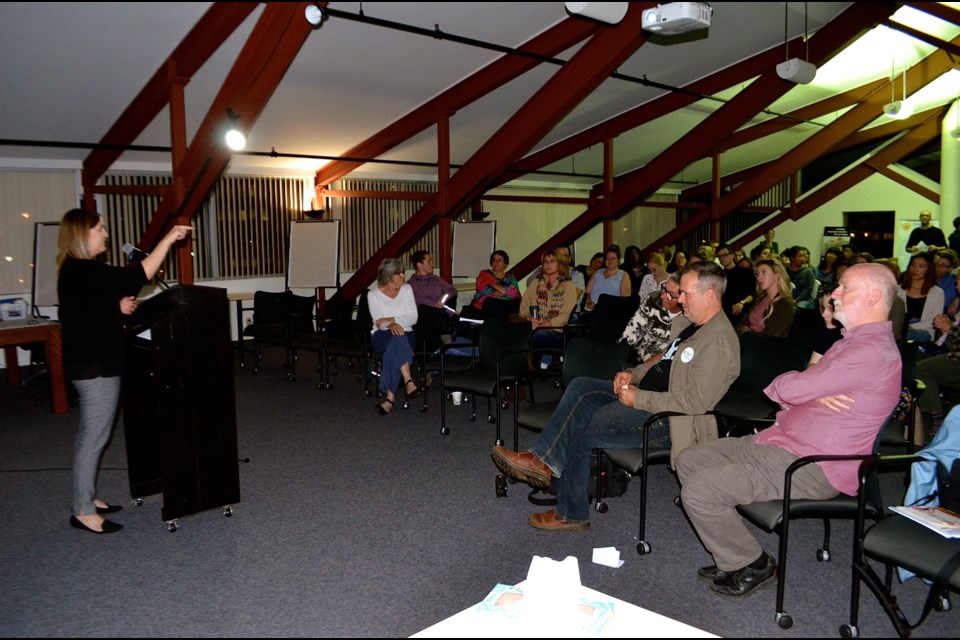Canadians donate approximately 100 million kilograms of food each year to food banks but studies reveal the biggest problem for the more than four million Canadians experiencing food insecurity isn’t access to food but income insecurity.
“The public face of food insecurity always has been and continues to be food banks,” said University of Toronto professor Valerie Tarasuk. “There is a gigantic disconnect and that is what we see when we are doing the smaller community studies. Food bank numbers grossly understate the depth of the problem.”
Tarasuk is the principle investigator for PROOF a research program funded by the Canadian Institute of Health Research that works to identify policy approaches to household food insecurity in Canada
She spoke Thursday during Moving Beyond Food Charity, an information session organized by Randalin Ellery coordinator for the Guelph-Wellington Taskforce for Poverty Elimination.
Tarasuk cited research collected over the past 20 years to promote new policies for welfare reform and the establishment of a basic income for low-income families. One benefit of the proposed reforms would be to healthcare.
“The relationship between food insecurity and health is unbelievable,” said Tarasuk. “Every condition we have looked at is more prevalent in people in food insecurity situations and that is true across the life cycle.”
She said food insecurity is linked to poor birth outcome and difficulty maintaining breastfeeding.
“Children living with food insecurity are more likely to manifest with a variety of chronic conditions as they grow up,” said Tarasuk. “It’s the same with adults and their ability to manage health conditions such as diabetes and mental health.”
The impact on the healthcare system is substantial.
“People who are severely food insecure are burning up almost triple the health care dollars of people who are food secure,” she said. “Even if nothing else I have said so far matters the public should care about this picture.”
She advocates social assistance reform that would guarantee a basic income much like that of seniors receiving old age pension but acknowledges that wouldn’t solve the problem of household food insecurity.
“Most people that are food insecure in this country aren’t on social assistance,” said Tarasuk. "The majority of households that are food insecure are in the workforce in low-wage, short-term jobs or precarious work. One argument for basic income is it could in theory reach those precarious workers.”
Speaker Mike Balkwill, provincial director for the social assistance reform campaign Put Food in the Budget expressed many of the same views and concerns. He said precariousness is built in to the present economic system and encouraged people to pressure politicians to take action.
“Food banks are not enough,” said Balkwill. “There is no reason in a society as wealthy as Ontario and Canada that people should not have enough money for food. People ask the question, ‘Is government listening’ and the answer is, of course they aren’t listening. Power holders respond to pressure and issues that will lead to them getting votes.”
He encouraged the audience to come up with ways to pressure politicians and push for economic reforms.
“Facts don’t matter to politicians,” he said. “Facts are used to organize ourselves and say this is our priority. If you, as a voter, make poverty reduction your issue and embarrass politicians in public that’s how it starts to happen.”
